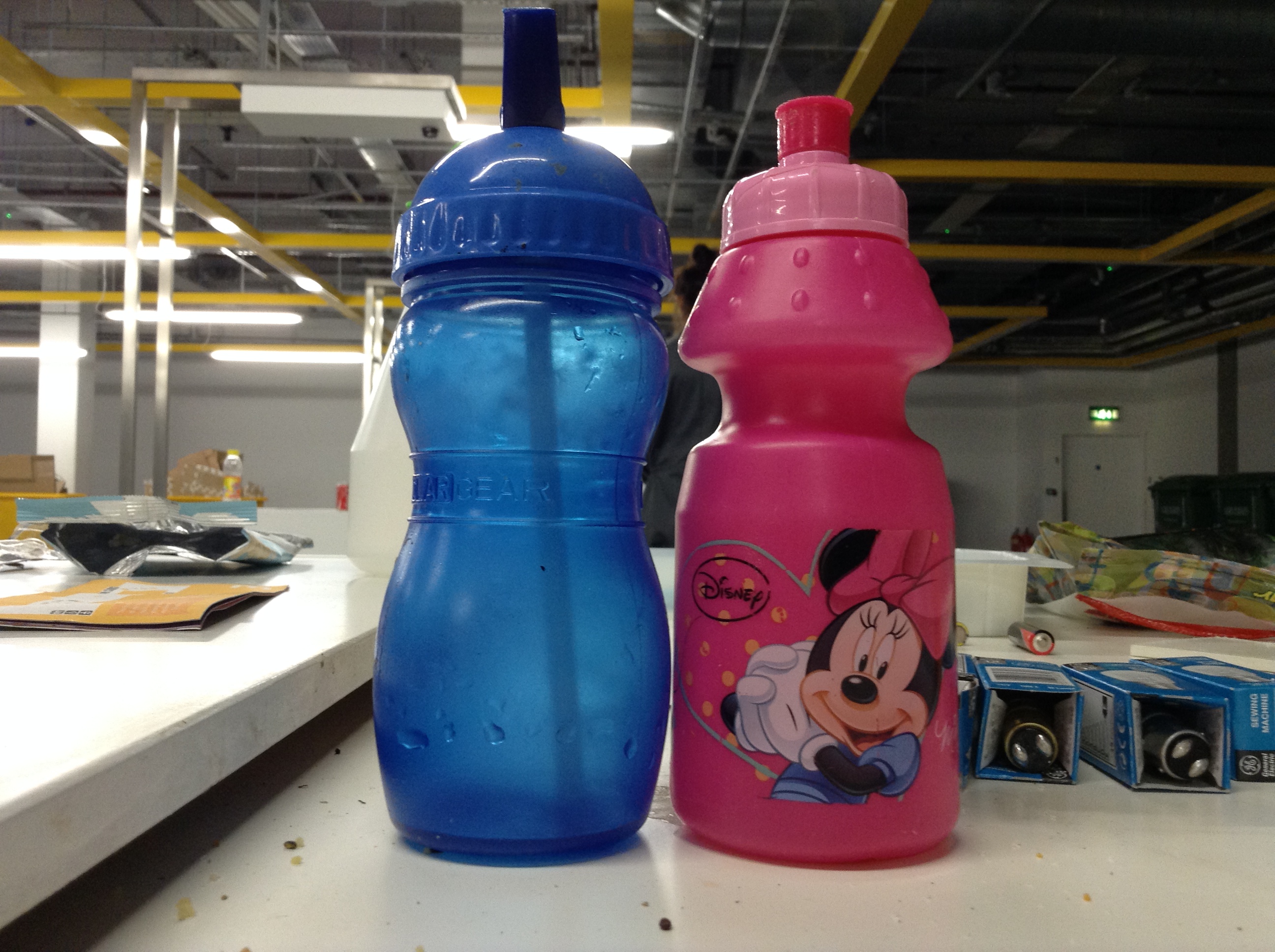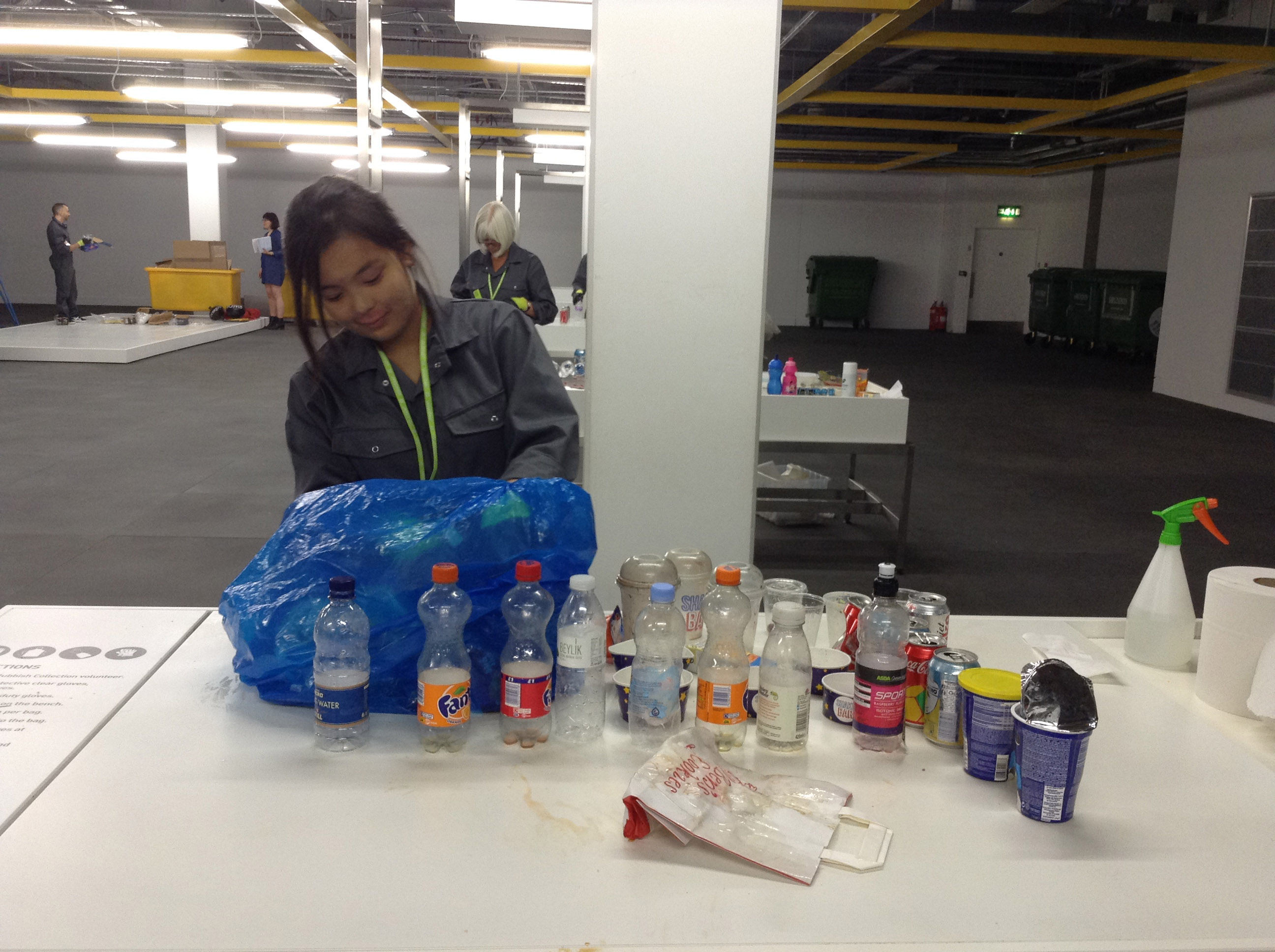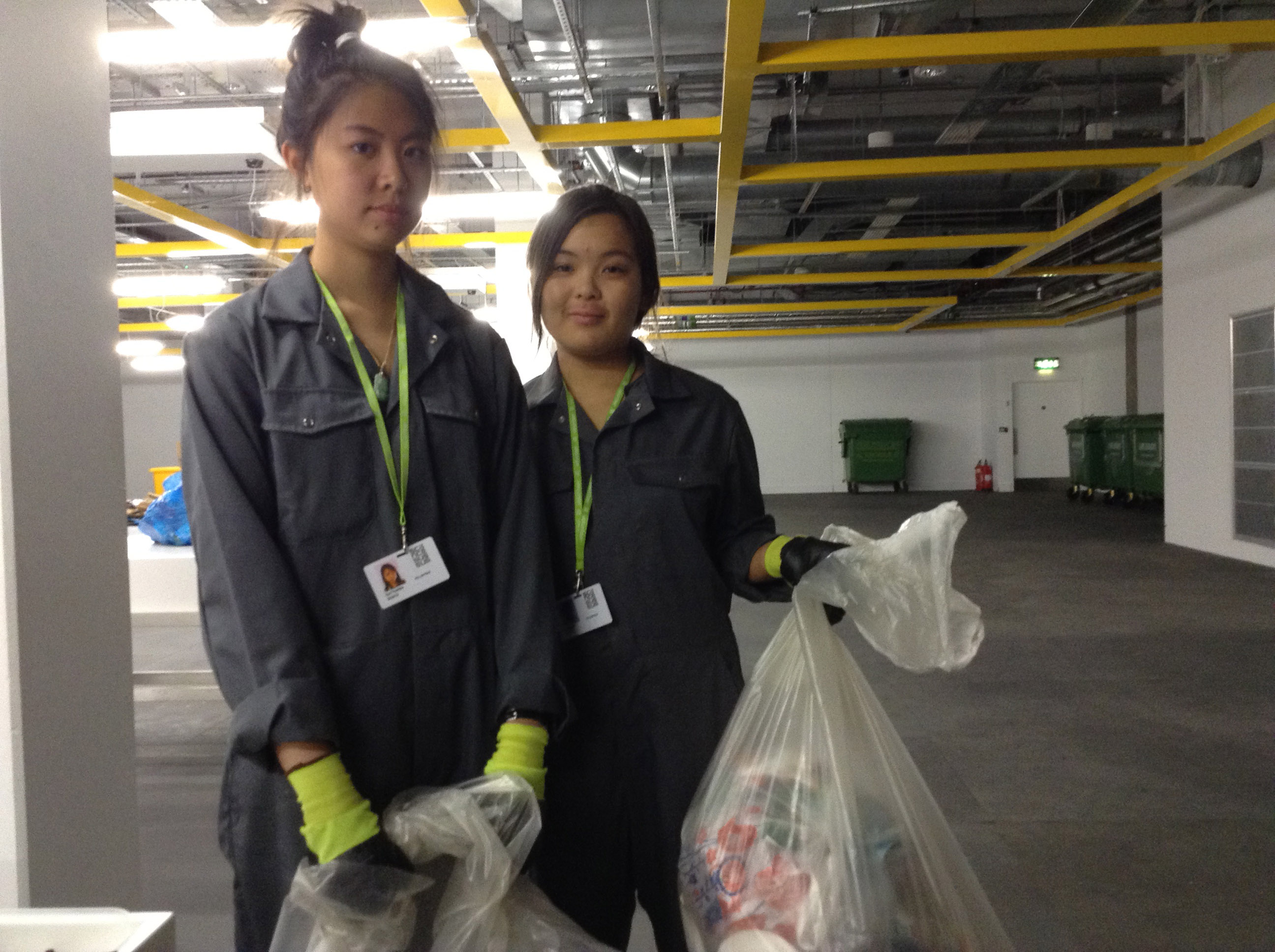In this week’s blog from The Rubbish Collection, Corrinne Burns, Content Developer at our Antenna Gallery gets a volunteer’s view on the exhibition.
‘Do people just get naked in the Science Museum?’ Katyanna Quach asks me, with a suspicious look in her eyes. Before I have time to give that mental image the thorough probing that it deserves, I’m given a bit of context. “We’ve found a bra, some shoes…”
‘And an entire suit. And money. And a television,’ adds her colleague Hannah Burke. We’re standing in the basement of the Museum, surrounded by the bagged detritus of the previous day – waste from galleries, cafés, offices and kitchens. But they’re here for a good reason: this, friends, is art. Katyanna and Hannah are two of the many volunteers helping artist Joshua Sofaer in his quest to document an entire month’s Museum waste.

Joshua’s Rubbish Collection is an unusual art installation – over the next few weeks, every single item that goes into a Museum bin will be taken out again and publicly documented. Joshua is building a photographic archive of 21st century Museum waste – every receipt, every teabag, every half-eaten potato (and, it would appear, every bra and every television). For the last few months I’ve been watching my colleagues work with Joshua to draw this idea, this ‘contemporary archaeology’ project, out of Joshua’s head and onto the Museum floor. Today, I’ve come to see the result – and to meet the Museum volunteers at the centre of this unique archive.
Joshua hopes that the Rubbish Collection will make us “… consider what we choose to keep, what we discard, and why.” It’s certainly making the volunteers think.

‘I’ve seen whole uneaten lunches from Waitrose. Not touched at all. You just think, “Why didn’t you take it home?”’ says Hannah Tran. ‘Even Museum cafés create food waste – obviously they can’t keep sandwiches forever, but on the night shift we get a lot of completely unopened paninis.’
Katyanna shares Hannah Tran’s unease at the sheer volume of waste we produce. ‘You see how much of it there is and think, “I shouldn’t waste so much. I should recycle more.” Some stuff that could be recycled is just put in with general waste, and then it’s contaminated so you can’t recycle it.’ Katyanna, like many of the volunteers here, was driven to get involved with The Rubbish Collection because she feels that we need to make ourselves think about waste. ‘So much media attention is devoted to wildlife at risk, to species going extinct … but still, some people don’t really care. So this project is an interesting way to talk to the public and get them to think about rubbish, and recycling, differently.’
So what do visitors make of the whole experience?
‘Well, it looks really factory-like in here. Because we’re dressed in boiler suits, I think people come over and think, “Oh, these guys are working!”’ says Katyanna. ‘So I go, “Hi! Do you want to sort rubbish?”, and explain what we’re doing. Some people do really enjoy it and try their hardest to make something pretty out of it. Some people are disgusted by it, but do it anyway.’

Visitors don’t have to get too close for comfort , of course. They’re just as welcome to come and observe the documentation process, and to talk to Joshua and his friendly team of assistants and volunteers. It’s certainly not the sort of gallery you see often. Or, indeed, ever.
‘I don’t think visitors to the Science Museum expect to find an art installation here. Especially this one, because it’s not “done” yet. It’s quite conceptual,’ says Hannah Tran. ‘It’s very different from the other stuff in the Museum. But people are really curious – kids are more interested in the rubbish itself, and older people often want to talk about the kind of stuff we find, but also about just how much waste there is.’
Tempted to take part? Let Hannah Burke convince you. ‘Although it may sound crazy, many of the rubbish bags have their own interesting stories to tell, and that can really make the job of sorting through rubbish worthwhile. It is always exciting to see enthusiastic members of the public become immersed at the task in hand. I can’t wait to see what interesting items the next three weeks have to offer!’
Phase 1 of The Rubbish Collection runs until 15 July 2014. Phase 2 is open from 25 July to 14 September 2014.
2 comments on “Every Receipt, Every Teabag, Every Half-eaten Potato”
Comments are closed.
On Radio 4’s Today programme we were told that the public could get involved sorting this rubbish. I have a number of volunteers, to whom should I send them?
Hi Jason, thanks for getting in touch. If you would like to volunteer, just come along to the Science Museum between 10-5pm any day until July 15 and you will be able to sort the rubbish.